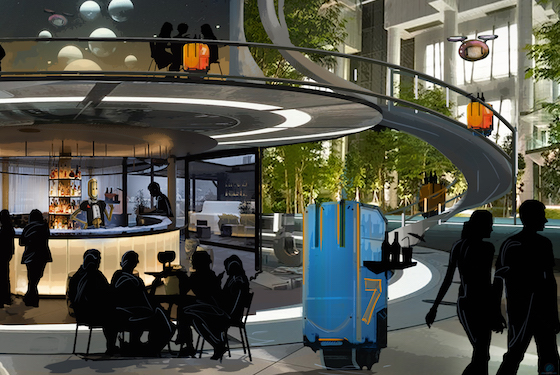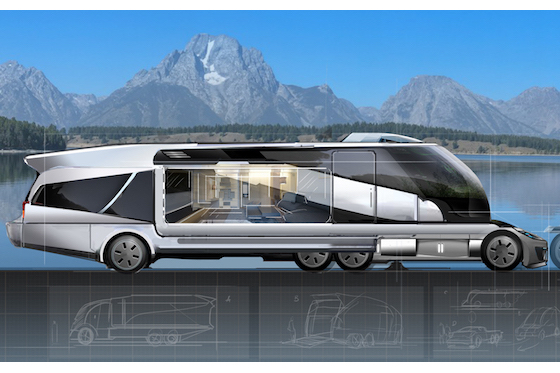The dramatic disruption of the COVID-19 pandemic caused global travel to plummet, new dependence on technology, unexpected free time – and many questions about the future. How and where will people work? What will travel look like? And how will hotels adapt?
Chicago-based design and development consultancy Gettys Group aimed to answer some of those questions with the Hotel of Tomorrow, a think tank comprising 325 hotel industry professionals, including major brands and universities.
Over the summer, 16 teams around the world studied health, technology, aesthetics and environmental aspects of hotel design and submitted 79 ideas; those were tested with project participants on the basis of impact on satisfaction, willingness to pay for it and uniqueness of solution. After polling about 75,000 people for feedback, the group presented the five ideas that tested best.

The think tank approach looked beyond short-term challenges to bigger opportunities – consolidating initial research on emerging technologies, then framing the trends through a hospitality lens.
No short-term solutions
If some of the results look familiar, it’s because the focus was on technology that is “achievable and maybe being utilized in some other industries, in other verticals, or even in an experimentation stage,” says Ron Swidler, Gettys’ chief innovation officer. “What we are looking at were fundamental trends that were changing what guests expect from brands, not just hospitality but from brands overall.”
The top five:
Optimized sleep platform. Engineered fabrics control bed temperature and act as filters to improve air quality. Apps permit guests to control lighting, temperature, humidity, background noise and mattress firmness, and to access exercise and meditation programs.
Bringing the outdoors in. Focusing on lighting, air quality, sound and scents, this approach uses installations of plant material, nature-driven video imagery and other ambient features to create a calming environment that encourages creativity and productivity.
Self-driving RV. A “Hotel Rover” for up to four people employs AI-powered digital assistance, guidance and entertainment options. It is designed for sleeping and can provide transport between partner hotels.
Journey Pebble. A digital, encrypted wearable called a “Journey Pebble” stores guest preferences with a hotel. A clone of the pebble joins those of other guests behind the front desk, where it interacts using AI as a sort of networking device.
Robot service. A “robot alliance” deconstructs F&B, deploying robots to serve guests anywhere on a hotel property. Robots have warming and cooling units and double as dining surfaces; others have audiovisual components for music, movies and gaming.
The actual costs to produce the five ideas weren’t determined. The project gave brands and designers a “safe space to talk about how to solve problems without committing to them. “The ideas are everyone’s,” Swidler says.
“Companies have a tendency to be siloed, and solutions that might be contemplated for one brand live within that brand. And yet, the franchisees operate hotels across multiple brands, and so there’s a disconnect between the desire to keep ideas to themselves and then to apply as many of the best ideas across brands as possible,” he says.

“People have a tendency to look at the most immediate needs and problems that are in front of them and address those first,” Swidler says. “We’re wired that way. We were trying to get this think tank to go beyond the cleaning protocols and safety standards that are a pandemic-based, short-term solution and make sure that the solutions that we’re proposing had long-term benefits.
The goal was to make sure that the teams had “one foot in fantasy and one foot in reality. That gives us credibility and believability,” Swidler says. I hope that’s one of the great things that comes from this challenge that we’ve all been going through is a bit of an opportunity to take a longer view and also to look at both the present and the past and say, ‘How do I reprioritize based upon what I’ve learned now?’ I think there’s been a lot of growth and a lot of rethinking of priorities and importance as a result of going through this. And we hope it carries forward.”
